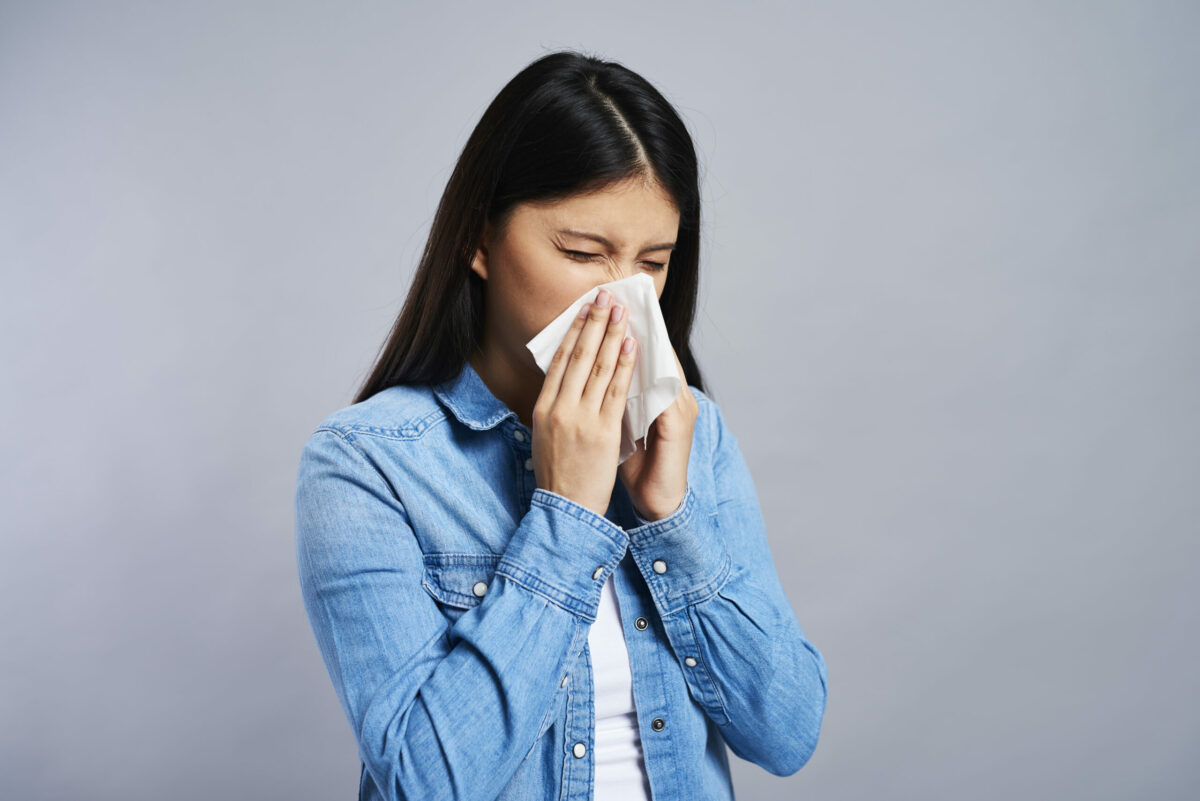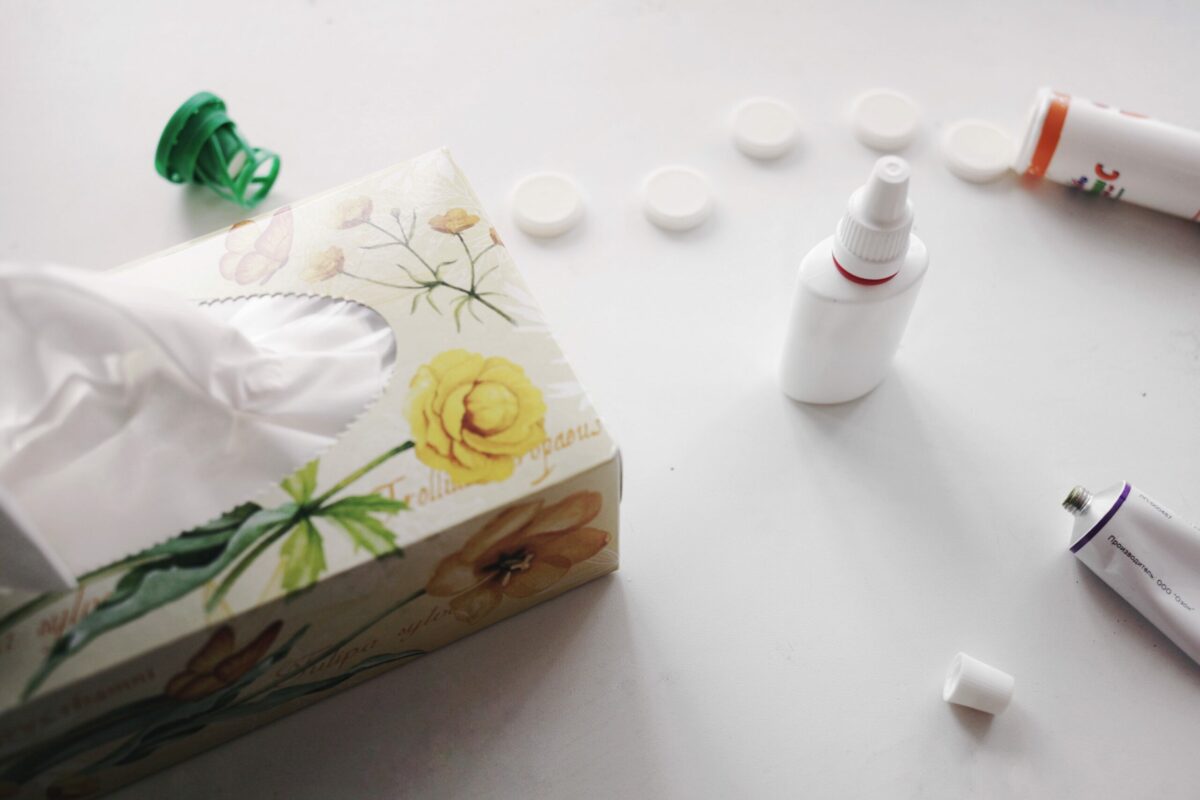An immune system reaction to a foreign substance, which is usually not harmful to your body is called Allergy. Foreign substances are also called allergens, which often include some foods, pollen, pet dander, or others. The immune system works by attacking anything that could be dangerous for your body. This effect may lead to inflammation, sneezing, or other symptoms. It depends on the allergen. Fortunately, several treatment options are available to treat this condition.
Symptoms
The symptoms that you may experience commonly depend on the severity and type of the allergy and other several factors. If you do not determine the exact cause of the allergy, medicines may not help you. Examples include:
- Food Allergies – This type of allergy usually provokes fatigue, nausea, hives, swelling, and others. If you experience any serious reaction after a meal, inform your doctor promptly.
- Seasonal Allergies – Congestion, runny nose, swollen eyes, and others are the common symptoms of this type of allergy. However, over-the-counter (OTC) medicines are enough to treat this allergy. In case your symptoms become unmanageable, consult a doctor at once.
- Severe Allergies – Anaphylaxis may occur due to severe allergies. Therefore, it may lead to trouble breathing, loss of consciousness, lightheadedness, and others. Get medical help right away if any of the previous symptoms appear.
Skin Allergy
A direct exposure to an allergen or a symptom of allergy may be skin allergies. Check below types of skin allergy:
- Burning – This type of allergy leads to inflammation, discomfort, and stinging sensations in the skin.
- Itching – You will experience irritated and inflamed skin.
- Swollen Eyes – Water and itchy eyes may occur.
- Hives – Raised, red, and itchy welts of different sizes and shapes may occur on the surface of your skin.
- Contact Dermatitis – This type of allergy usually occurs right away after contact with an allergen. The common symptoms are red, itchy patches on the skin.
- Sore Throat – Inflammation or irritation of the throat or pharynx may occur.
- Eczema – This is a severe type of skin allergy, which may cause inflammation, bleeding, and itching of patches on the skin.
- Rashes – Painful and itchy regions on the skin that are commonly red, swollen, or irritated.
If you experience any of the allergies listed above, it is advised to see a doctor immediately.
How to Diagnose an Allergy?
Several methods of diagnosis of allergy are available. Your doctor will perform a physical exam and ask about your symptoms. Check below for some examples:
- Allergy Blood Test – Your healthcare professional will direct you to do a blood test for the presence of allergy-causing antibodies (such as immunoglobulin E (IgE).
- Skin Test – Another diagnosis method is a skin test that is commonly carried out by an allergist.
Causes
However, it is not known exactly why your immune system causes allergy when a foreign substance enters your body. Allergies have genetic components thereby, they may be passed down by parents to their children. Check below the common causes of allergies:
- Foods that include wheat, nuts, milk, shellfish, and egg. These are the most common allergens.
- Insect Stings including bees, wasps, and mosquitos.
- Mold spores can also trigger an allergic reaction.
- Plants including grass, weeds, trees, and resin from plants including poison ivy and poison oak are usually the common allergens.
- Animal Products such as pet dander, dust mite waste, and cockroaches.
- Drugs such as Penicillin and sulfa drugs.
- Other Allergens include latex gloves and condoms. In addition, metals such as nickel are also common allergens.
One of the most common seasonal allergies is hay fever. It is caused by pollen released by plants. The symptoms of hay fever include runny nose, coughing, watery eyes, itchy eyes, and others. If you experience any of the previous symptoms it is not sure that you have a seasonal allergy. Consult a doctor to determine what the exact cause of the symptoms is.
What are Treatment Options?
It is advised to sway away from whatever triggers the allergic reaction. In any case, if it is not possible, your healthcare provider will prescribe one or a combination of the following treatment options. Check below some examples:
Medicines
Medications are usually included in the treatment of allergy. Doctors usually prescribe antihistamines. The type of drug and dosage depends on the severity of the allergy you experience. For example:
- Diphenhydramine
- Corticosteroid medicines
- Cetirizine
- Loratadine
- Cromolyn Sodium
- Decongestants
- Leukotriene Modifiers
There is a leukotriene modifier medicine (Singulair) that should be used with a physician’s prescription only. Otherwise, it may elevate your risk of serious mental or mood changes (such as suicidal thoughts or actions).
Immunotherapy
This type of treatment includes injections that help the body to get used to your allergic reaction. If this course of treatment is successful, it can help to prevent the return of the symptoms.
Emergency Epinephrine
If you experience a severe allergy, it is advised to get an epinephrine shot. This will help you to decrease the symptoms until medical help arrives.
Natural Remedies
Several natural options are available to prevent or treat an allergic reaction. However, it is advised to consult with a doctor before using any of them because certain natural treatments may contain ingredients that may worsen your symptoms.
How to Prevent Allergic Symptoms?
Avoiding the allergen triggers is one of the best ways to prevent allergy symptoms. However, to prevent an allergy is not possible. For example, if you are allergic to food, an elimination diet. Moreover, to prevent seasonal allergies, it is recommended to dust your home regularly and install proper air filters.
Complications
In some cases, an allergic reaction can cause several complications. However, your healthcare professional can help to determine the exact cause of symptoms and prescribe suitable treatment. Your physician may also help to prevent or avoid how to manage your allergy symptoms and how to avoid complications. Check below some examples of allergy complications:
- Asthma and Allergies – A common respiratory disease is asthma. It makes breathing difficult and narrows the air passages in the lungs. According to the Allergy and Asthma Foundation of America, about 60% experience allergic asthma.
- Allergies and Cold – Cough, sneeze, and runny nose are the common symptoms of an allergic reaction and cold. An allergy can negatively affect your immune system and you are likely to get a virus. Therefore, one of the common causes of the common cold is viruses.
- Allergy and Bronchitis – Factors that can provoke bronchitis are bacteria, viruses, or may be due to allergies. The common allergens that provoke bronchitis include dust, pollen, chemical fumes, air pollution, cigarette smoke, and others. Discuss with your healthcare provider for more details.
- Allergy and Babies – Skin allergies are common in younger children. However, this type of allergy decreases as children grow older but respiratory and food allergies become more common in them. Examples of common skin allergies in babies include hives, allergic contact dermatitis, and eczema.
Frequently Asked Questions
Can allergies be cured?
No, it is possible to treat and keep under control the symptoms. Avoid things that trigger an allergic reaction because it will help to lessen allergy symptoms. Talk with a doctor for more details.
What are plants that can aggravate allergy?
There are several plants that it is not recommended to use if you were diagnosed with an allergy. For example:
- Weeds (such as redroot pigweed, ragweed, sagebrush, and others)
- Grasses (including timothy grass, redtop grass, salt grass, fescue, and others)
- Hardwood deciduous trees (such as maple, elm, pecan, hazel, among others)
Can stress provoke allergies?
Stress does not provoke an allergy but it may worsen an existing allergic reaction. It elevates histamine levels in your bloodstream. Ask your healthcare professional if you have any questions.




